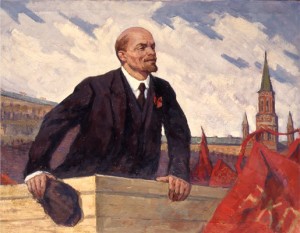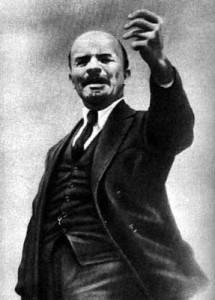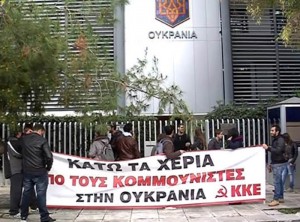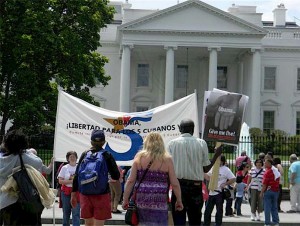Written: July, 1920
First Published: First published in 1921 in the book The Second Congress of the Communist International, Verbatum Report. Published by the Communist International, Petrograd; Published according to the text of the book
Source: Lenin’s Collected Works, 4th English Edition, Progress Publishers, Moscow, 1965, Volume 31, pages 206-211
Translated: Julius Katzer
Transcription\HTML Markup: David Walters & R. Cymbala
Copyleft: V. I. Lenin Internet Archive (www.marx.org ) 2002. Permission is granted to copy and/or distribute this document under the terms of the GNU Free Documentation License
The First, Inaugural Congress of the Communist International[1] did not draw up precise conditions for the admission of parties into the Third International. When the First Congress was convened, only communist trends and groups existed in most countries.
It is in a different situation that the Second World Congress of the Communist International is meeting. In most countries, Communist parties and organisations, not merely trends, now exist.
Parties and groups only recently affiliated to the Second International are more and more frequently applying for membership in the Third International, though they have not become really Communist. The Second International has definitely been smashed. Aware that the Second International is beyond hope, the intermediate parties and groups of the “Centre†are trying to lean on the Communist International, which is steadily gaining in strength. At the same time, however, they hope to retain a degree of “autonomy†that will enable them to pursue their previous opportunist or “Centrist†policies. The Communist International is, to a certain extent, becoming the vogue.
The desire of certain leading “Centre†groups to join the Third International provides oblique confirmation that it has won the sympathy of the vast majority of class conscious workers throughout the world, and is becoming a more powerful force with each day.
In certain circumstances, the Communist International may be faced with the danger of dilution by the influx of wavering and irresolute groups that have not as yet broken with their Second International ideology.
Besides, some of the big parties (Italy, Sweden), in which the majority have adopted the communist standpoint, still contain a strong reformist and social-pacifist wing that is only waiting for an opportune moment to raise its head again, begin active sabotage of the proletarian revolution, and thereby help the bourgeoisie and the Second International.
No Communist should forget the lessons of the Hungarian Soviet Republic. The Hungarian proletariat paid dearly for the Hungarian Communists having united with the reformists.
In view of all this, the Second World Congress deems it necessary to lay down absolutely precise terms for the admission of new parties, and also to set forth the obligations incurred by the parties already affiliated.
The Second Congress of the Communist International resolves that the following are the terms of Comintern membership:
1. Day-by-day propaganda and agitation must be genuinely communist in character. All press organs belonging to the parties must be edited by reliable Communists who have given proof of their devotion to the cause of the proletarian revolution. The dictatorship of the proletariat should not be discussed merely as a stock phrase to be learned by rote; it should be popularised in such a way that the practical facts systematically dealt with in our press day by day will drive home to every rank-and-file working man and working woman, every soldier and peasant, that it is indispensable to them. Third International supporters should use all media to which they have access—the press, public meetings, trade unions, and co-operative societies—to expose systematically and relentlessly, not only the bourgeoisie but also its accomplices—the reformists of every shade.
2. Any organisation that wishes to join the Communist International must consistently and systematically dismiss reformists and “Centrists†from positions of any responsibility in the working-class movement (party organisations, editorial boards, trade unions, parliamentary groups, co-operative societies, municipal councils, etc.), replacing them by reliable Communists. The fact that in some cases rank-and-file workers may at first have to replace “experienced†leaders should be no deterrent.
3. In countries where a state of siege or emergency legislation makes it impossible for Communists to conduct their activities legally, it is absolutely essential that legal and illegal work should be combined. In almost all the countries of Europe and America, the class struggle is entering the phase of civil war. In these conditions, Communists can place no trust in bourgeois legality. They must everywhere build up a parallel illegal organisation, which, at the decisive moment, will be in a position to help the Party fulfil its duty to the revolution.
4. Persistent and systematic propaganda and agitation must be conducted in the armed forces, and Communist cells formed in every military unit. In the main Communists will have to do this work illegally; failure to engage in it would be tantamount to a betrayal of their revolutionary duty and incompatible with membership in the Third International.
5. Regular and systematic agitation is indispensable in the countryside. The working class cannot consolidate its victory without support from at least a section of the farm labourers and poor peasants, and without neutralising, through its policy, part of the rest of the rural population. In the present period communist activity in the countryside is of primary importance. It should be conducted, in the main, through revolutionary worker-Communists who have contacts with the rural areas. To forgo this work or entrust it to unreliable semi-reformist elements is tantamount to renouncing the proletarian revolution.
6. It is the duty of any party wishing to belong to the Third International to expose, not only avowed social-patriotism, but also the falsehood and hypocrisy of social-pacifism. It must systematically demonstrate to the workers that, without the revolutionary overthrow of capitalism, no international arbitration courts, no talk about a reduction of armaments, no “democratic†reorganisation of the League of Nations will save mankind from new imperialist wars.
7. It is the duty of parties wishing to belong to the Communist International to recognise the need for a complete and absolute break with reformism and “Centrist†policy, and to conduct propaganda among the party membership for that break. Without this, a consistent communist policy is impossible.
The Communist International demands imperatively and uncompromisingly that this break be effected at the earliest possible date. It cannot tolerate a situation in which avowed reformists, such as Turati, Modigliani and others, are entitled to consider themselves members of the Third International. Such a state of affairs would lead to the Third International strongly resembling the defunct Second International.
8. Parties in countries whose bourgeoisie possess colonies and oppress other nations must pursue a most well-defined and clear-cut policy in respect of colonies and oppressed nations. Any party wishing to join the Third International must ruthlessly expose the colonial machinations of the imperialists of its “own†country, must support—in deed, not merely in word—every colonial liberation movement, demand the expulsion of its compatriot imperialists from the colonies, inculcate in the hearts of the workers of its own country an attitude of true brotherhood with the working population of the colonies and the oppressed nations, and conduct systematic agitation among the armed forces against all oppression of the colonial peoples.
9. It is the duty of any party wishing to join the Communist International to conduct systematic and unflagging communist work in the trade unions, co-operative societies and other mass workers’ organisations. Communist cells should be formed in the trade unions, and, by their sustained and unflagging work, win the unions over to the communist cause. In every phase of their day-by-day activity these cells must unmask the treachery of the social-patriots and the vacillation of the “Centristsâ€. The cells must be completely subordinate to the party as a whole.
10. It is the duty of any party belonging to the Communist International to wage a determined struggle against the Amsterdam “International†of yellow trade unions.[2] Its indefatigable propaganda should show the organised workers the need to break with the yellow Anusterdam International. It must give every support to the emerging international federation of Red trade unions [3] which are associated with the Communist International.
11. It is the duty of parties wishing to join the Third International to re-examine the composition of their parliamentary groups, eliminate unreliable elements and effectively subordinate these groups to the Party Central Committees. They must demand that every Communist proletarian should subordinate all his activities to the interests of truly revolutionary propaganda and agitation.
12. The periodical and non-periodical press, and all publishing enterprises, must likewise be fully subordinate to the Party Central Committee, whether the party as a whole is legal or illegal at the time. Publishing enterprises should not be allowed to abuse their autonomy and pursue any policies that are not in full accord with that of the Party.
13. Parties belonging to the Communist International must be organised on the principle of democratic centralism. In this period of acute civil war, the Communist parties can perform their duty only if they are organised in a most centralised manner, are marked by an iron discipline bordering on military discipline, and have strong and authoritative party centres invested with wide powers and enjoying the unanimous confidence of the membership.
14. Communist parties in countries where Communists can conduct their work legally must carry out periodic membership purges (re-registrations) with the aim of systematically ridding the party of petty-bourgeois elements that inevitably percolate into them.
15. It is the duty of any party wishing to join the Communist International selflessly to help any Soviet republic in its struggle against counter-revolutionary forces. Communist parties must conduct incessant propaganda urging the workers to refuse to transport war materials destined for the enemies of the Soviet republics; they must conduct legal or illegal propaganda in the armed forces dispatched to strangle the workers’ republics, etc.
16. It is the duty of parties which have still kept their old Social-Democratic programmes to revise them as speedily as possible and draw up new communist programmes in conformity with the specific conditions in their respective countries, and in the spirit of (Communist International decisions. As a rule, the programmes of all parties belonging to the Communist International must be approved by a regular Congress of the Communist International or by its Executive Committee. In the event of the Executive Committee withholding approval, the party is entitled to appeal to the Congress of the Communist International.
17. All decisions of the Communist International ’s congresses and of its Executive Committee are binding on all affiliated parties. Operating in conditions of acute civil war, the Communist International must be far more centralised than the Second International was. It stands to reason, however, that in every aspect of their work the Communist International and its Executive Committee must take into account the diversity of conditions in which the respective parties have to fight and work, and adopt decisions binding on all parties only on matters in which such decisions are possible.
18. In view of the foregoing, parties wishing to join the Communist International must change their name. Any party seeking affiliation must call itself the Communist Party of the country in question (Section of the Third, Communist International). The question of a party’s name is not merely a formality, but a matter of major political importance. The Communist International has declared a resolute war on the bourgeois world and all yellow Social-Democratic parties. The difference between the Communist parties and the old and official “Social-Democraticâ€, or “socialistâ€, parties, which have betrayed the banner of the working class, must be made absolutely clear to every rank-and-file worker.
19. After the conclusion of the proceedings of the Second World Congress of the Communist International, any party wishing to join the Communist International must at the earliest date convene an extraordinary congress for official acceptance of the above obligations on behalf of the entire party.
Endnotes
[1] The First Congress of the Communist International was held on March 2-6, 1919, in Moscow. Fifty-two delegates attended, 34 with the right to vote and 18‹with voice but no vote. The following Communist and Socialist parties, organisations and groups were represented: the Communist Parties of Russia, Germany, German Austria, Hungary, Poland, Finland, the Ukraine, Latvia, Lithuania and Byelorussia, Estonia, Armenia, of the German colonies in Russia, the Swedish Left Social-Democratic Party, the Norwegian Social-Democratic Party, the Swiss Social-Democratic Party (Opposition), the Revolutionary Balkan Federation, the United Group of the Eastern Tribes of Russia, the French Zimmerwaldian Left, the Czech, Bulgarian, Yugoslav, British, French, and Swiss Communist groups, the Dutch Social-Democratic Party, the American League of Socialist Propaganda, the American Socialist Labour Party, the Chinese Socialist Labour Party, the Korean Workers’ League, the Turkestan, Turkish, Georgian, Azerbaijan and Persian Sections of the Central Bureau of Eastern Nations and the Zimmerwald Commission.
The first meeting of the Comintern passed a decision “to consider this meeting as an international communist conference”, and adopted the following agenda: 1) the inauguration, 2) reports, 3) the platform of the international communist conference, 4) bourgeois democracy and prolotarian dictatorship, 5) the Berne Conference and the attitude towards socialist trends, 6) the international situation and the policy of the Entente, 7) the Manifesto, 8) the White terror, 9) elections to the Bureau, and various organisational questions.
The conference, whose work centred on Lenin’s theses and report on bourgeois democracy and proletarian dictatorship, unanimously expressed solidarity with Lenin’s theses and adopted a decision to refer them to the Bureau for dissemination in the various countries. The conference also adopted a resolution tabled by Lenin, in addition to the theses.
On March 4, after the theses and the resolution on Lenin’s report had been adopted, the conference decided to constitute itself as the Third International, and to take the name of the Communist International. On the same day a rosolution was unanimously passed to consider the Zimmerwald Left dissolved, and the Comintern platform was approved, on the following main principles: 1) the inevitability of the capitalist social system being replaced by a communist system; 2) the necessity of the proletariat’s revolutionary struggle to overthrow bourgeois governments; 3) the abolition of the bourgeois state and its replacement by a state of a new type, i.e., the state of the proletariat, of the Soviet type, which will ensure the transition to a communist society.
One of the most important documents of the Congress was the Manifesto to the world proletariat, which declared that the Communist International was the successor of Marx’s and Engels’s ideas as expressed in the Communist Manifesto. The Congress called upon the workers of the world to support Soviet Russia, and demanded non-interference by the Entente in the internal affairs of the Soviet Republic, the withdrawal of the interventionist troops from Russian territory, recognition of the Soviet state, the raising of the economic blockade, and the resumption of trade relations.
In its resolution on “The Attitude Towards the ’Socialist’ Parties and the Berne Conferenceâ€, the Congress condemned the attempts to re-establish the Second International, which was “an instrument of the bourgeoisle only”, and declared that the revolutionary proletariat had nothing in common with that conference.
The establishment of the Third, Communist International played a tremendous part in restoring links between the working people of many countries, in forming and consolidating Communist partles, and in exposing opportunism in the working-class movement.
[2] The Amsterdam “International†of yellow trade unions (the International Federation of Trade Unions) was established by reformist trade union leaders of a number of countries, at a conference held in Amsterdam on July 26-August 2, 1919. The trade union organisations of 14 countries merged to form this federation, viz., Britain, France, Germany, the U.S.A., Belgium Denmark, Holland, Luxemburg, Norway, Sweden, Austria Czechoslovakia, Switzerland and Spain. The reactionary trade union leaders of Britain and France were predominant in the Amsterdam International of trade unions, whose entire activities were connected with the policies of the opportunist parties of the Second International. The Amsterdam International came out in favour of the proletariat’s collaboration with the bourgeoisie, and rejected revolutionary forms of the proletariat’s struggle. The leaders of the Amsterdam International pursued a policy of splitting the working-class movement, excluded Left-wing trade unions from the organisation, and rejected all proposals by the Red International of Labour Unions for joint action against capital, the threat of war, reaction and fascism, and to establish world-wide trade union unity. The leaders of the Amsterdam International supported the anti-Soviet policy of the ruling circles of the imperialist states.
During the Second World War the Amsterdam International’s activities ceased.
[3] The Red International of Labour Unions (the Profintern )—an in ternational organisation of revolutionary trade unions. It was organised in 1921, and existed till the end of 1937. It amalgamated trade union centres which had not entered the reformist Amsterdam International of trade unions, i.e., the All-Russia Central Council of Trade Unions, the Unitary General Confederation of Labour of France, the national revolutionary trade union centres of Australia, Belgium, Holland, Indonesia, Ireland, Canada, China, Colombia, Korea, Lithuania, Mongolia, Iran, Peru, Uruguay, Czechoslovakia, Chile and Estonia, as well as opposition groups and trends within the reformist trade unions in a number of capitalist countries. The Red Trade Union International waged a struggle for unity in the trade union movement, on the basis of a revolutionary struggle, in defence of the demands of the working class, against capital and fascism, against the danger of imperialist war, and for solidarity with the working class of Soviet Russia.
















